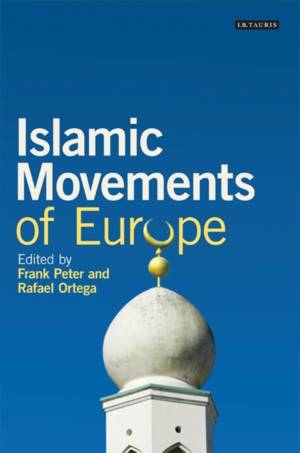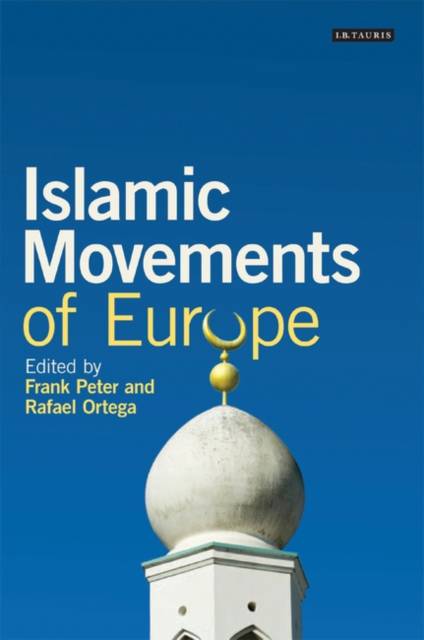
- Retrait gratuit dans votre magasin Club
- 7.000.000 titres dans notre catalogue
- Payer en toute sécurité
- Toujours un magasin près de chez vous
- Retrait gratuit dans votre magasin Club
- 7.000.0000 titres dans notre catalogue
- Payer en toute sécurité
- Toujours un magasin près de chez vous
Islamic Movements of Europe
Public Religion and Islamophobia in the Modern World
Frank Peter, Rafael Ortega
195,45 €
+ 390 points
Description
'Islam in Europe' and 'Islamophobia' are subjects of vital global importance which currently preoccupy policy-makers and academics alike. Through the examination of various European Muslim groups and institutions that have branched off from Islamic movements - including the Muslim Brotherhood, Hizb ut-Tahrir and Jama'at-i Islami - this book outlines the configuration of social, political and religious processes that have given rise to new kinds of European Muslim organisations. The authors offer a new perspective on these Muslim groups and seek to reclaim them from the often highly-charged public debates by placing them within the context of their origins as politicised religious movements on the one hand and their ongoing incorporation into European societal structures on the other. They also consider the relationship of these organisations to their 'parent' movements and examine the presence of Islam in European education and higher education institutions.
Taking into account the connection between Islamic movements and the perceived surge of 'Islamophobia' in Europe, this book does not debate the question of whether these groups fit into normative or cultural structures of European nation-states, but rather examines how these structures have changed through their interaction with these groups and the growing Muslim population within Europe. It does not consider political Islam as the antithesis to a refined notion of secularism, but as a form of public religion which contributes to the ever-changing structure of Europe's secular regimes. Featuring the work of more than 40 scholars from around the world, this is the comprehensive guide to Islamic movements in Europe, offering original, definitive perspectives on Muslims and Islam in Europe today. It will be essential reading for policy-makers, political commentators and scholars alike.
Taking into account the connection between Islamic movements and the perceived surge of 'Islamophobia' in Europe, this book does not debate the question of whether these groups fit into normative or cultural structures of European nation-states, but rather examines how these structures have changed through their interaction with these groups and the growing Muslim population within Europe. It does not consider political Islam as the antithesis to a refined notion of secularism, but as a form of public religion which contributes to the ever-changing structure of Europe's secular regimes. Featuring the work of more than 40 scholars from around the world, this is the comprehensive guide to Islamic movements in Europe, offering original, definitive perspectives on Muslims and Islam in Europe today. It will be essential reading for policy-makers, political commentators and scholars alike.
Spécifications
Parties prenantes
- Auteur(s) :
- Editeur:
Contenu
- Nombre de pages :
- 416
- Langue:
- Anglais
- Collection :
Caractéristiques
- EAN:
- 9781848858442
- Date de parution :
- 30-08-14
- Format:
- Livre relié
- Format numérique:
- Genaaid
- Dimensions :
- 157 mm x 236 mm
- Poids :
- 771 g

Les avis
Nous publions uniquement les avis qui respectent les conditions requises. Consultez nos conditions pour les avis.






